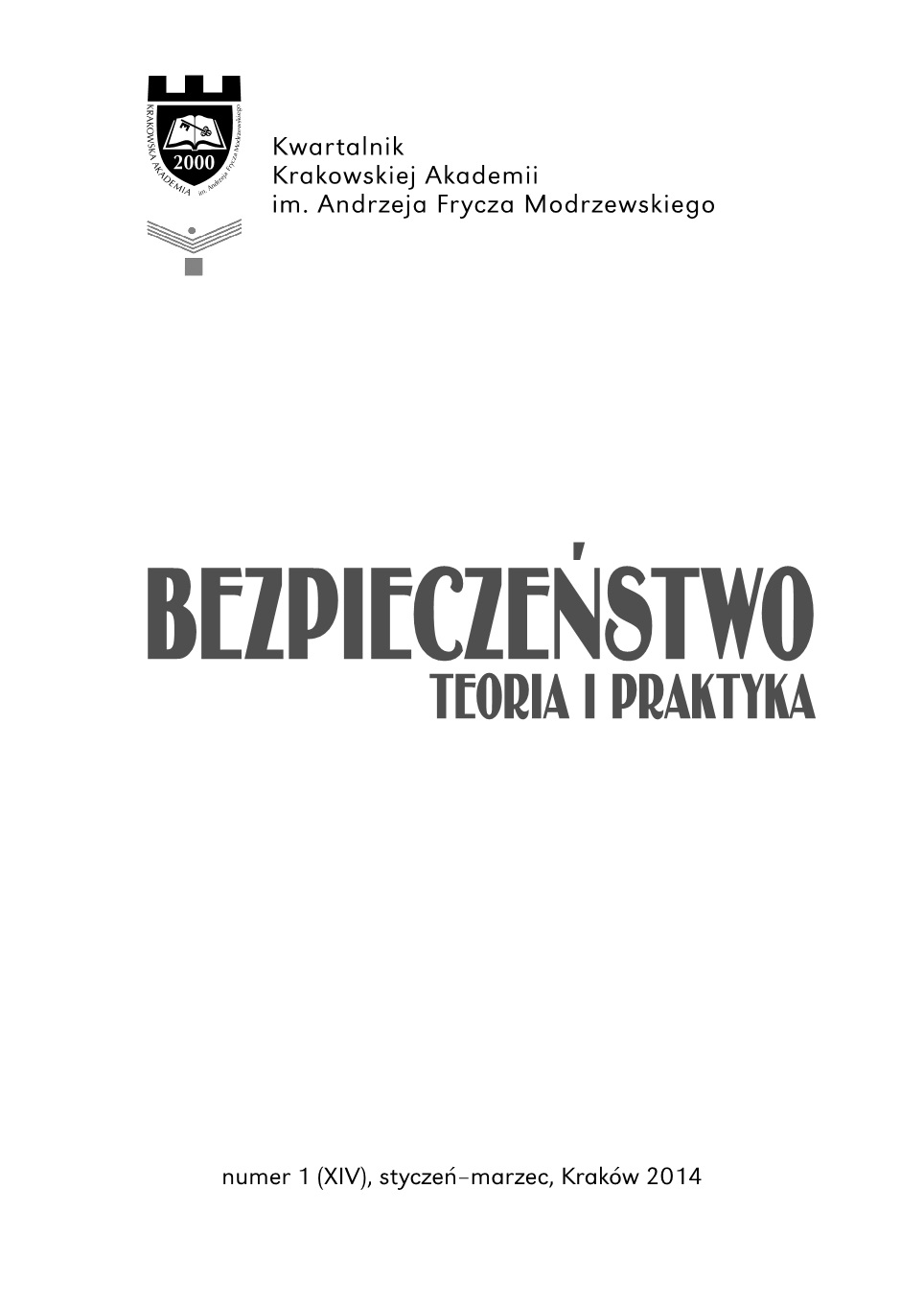
We kindly inform you that, as long as the subject affiliation of our 300.000+ articles is in progress, you might get unsufficient or no results on your third level or second level search. In this case, please broaden your search criteria.


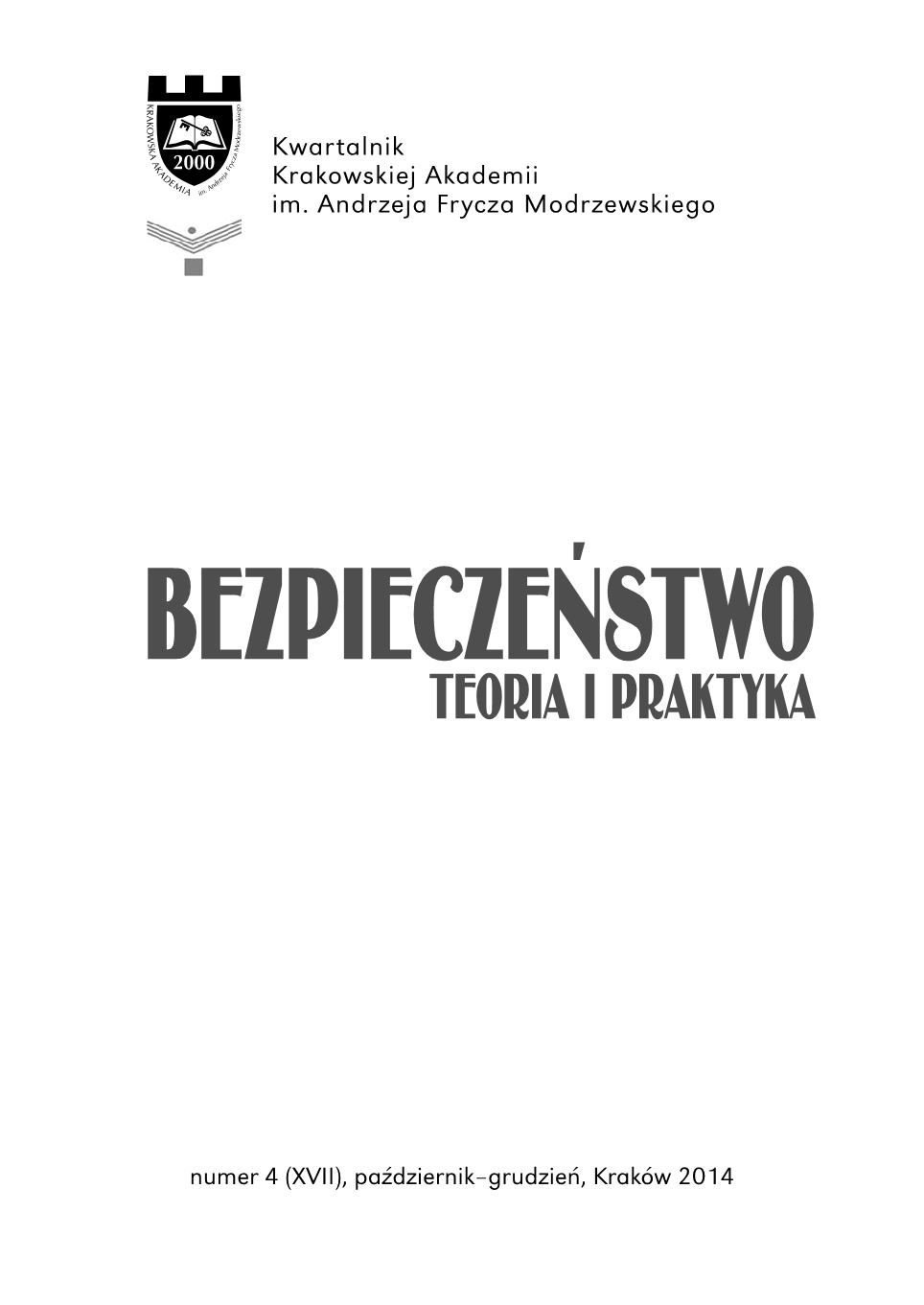
![Michael Novak, Writing from Left to Right: My Journey from Liberal to Conservative, [Image Books Press, Bournemouth 2013, 336 pp.]](/api/image/getissuecoverimage?id=picture_2014_42537.jpg)
![Ulrich van der Heyden, GDR International Development Policy Involvement. Doctrine and Strategies between Illusions and Reality 1960–1990: The Example (South) Africa, [Lit Verlag, Berlin 2013, 316 pp.]](/api/image/getissuecoverimage?id=picture_2014_42599.jpg)
![James Jay Carafano, Wiki at War. Conflict in the Socially Networked World, [Texas A&M University Press, College Station 2012, 326 s.] Sandra Fiałek: Ewolucja](/api/image/getissuecoverimage?id=picture_2014_42611.jpg)
![Erhard Cziomer, Wyzwania nowej roli międzynarodowej Niemiec w dobie globalizacji, kryzysów gospodarczych i finansowo-politycznych po 2007 roku [Oficyna Wydawnicza AFM, Kraków 2018, 336 S.]](/api/image/getissuecoverimage?id=picture_2018_42771.jpg)
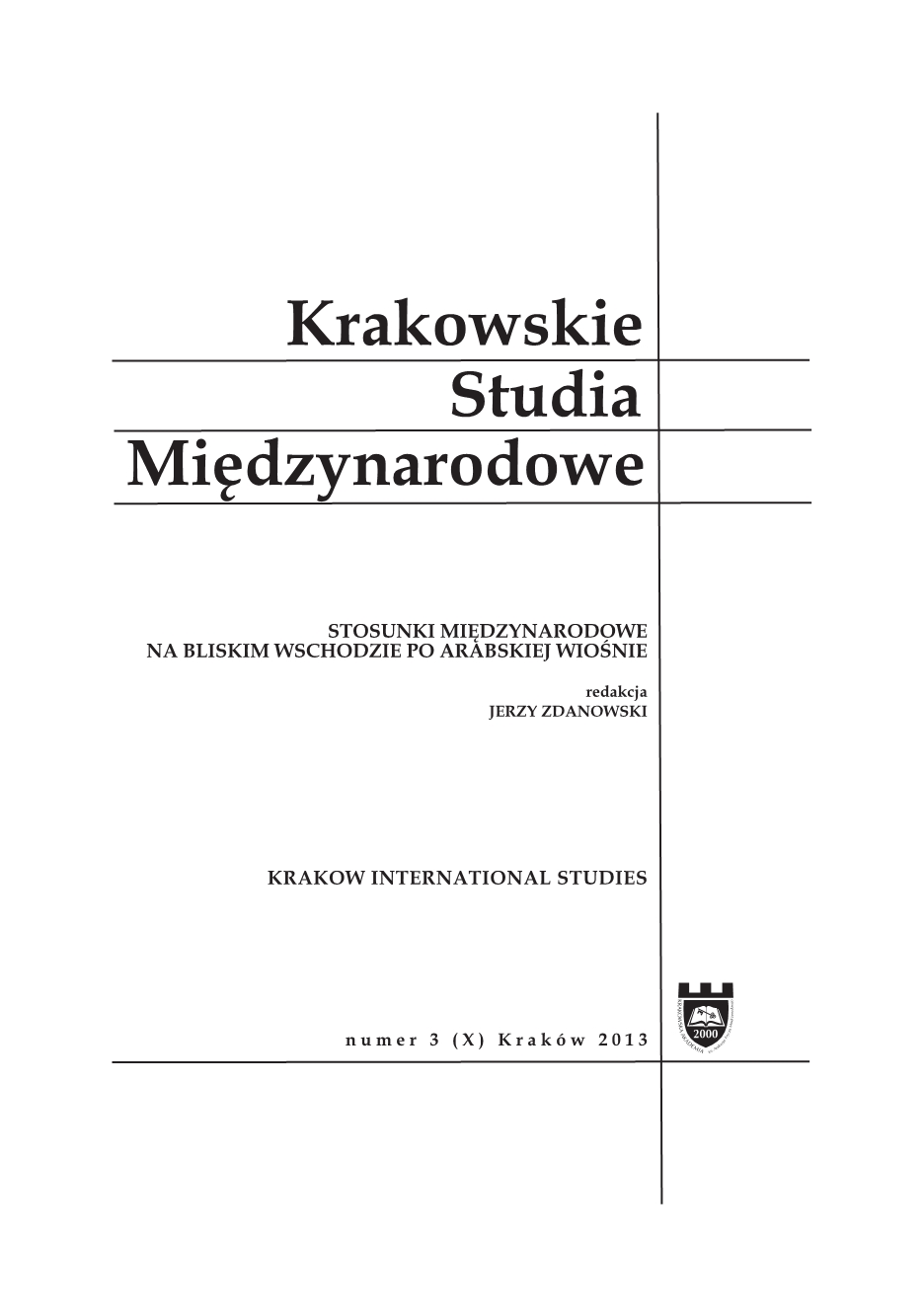
![Helmut Wagner, Vom Stoerenfried zum Buergen. Die “deutsche Frage” im europaeischen Kontext. Ein politischwissenschaftliches Essay, [Mut Verlag, Asendorf 2012, 238 s.]](/api/image/getissuecoverimage?id=picture_2012_45208.jpg)
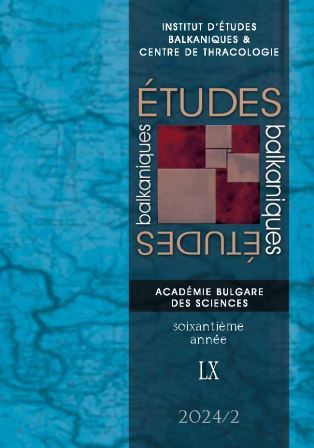


This is an overview of the content of the journal Études balkaniques in the last decade (2014 – 2023) covering the period between the end of the 14th century and the last quarter of the 19th century. The most popular topics that stand out when reviewing it are religious communities and identity issues, urban studies, modernisation. Along with them we observe interest in economy in general, commerce and rural life, international relations.
More...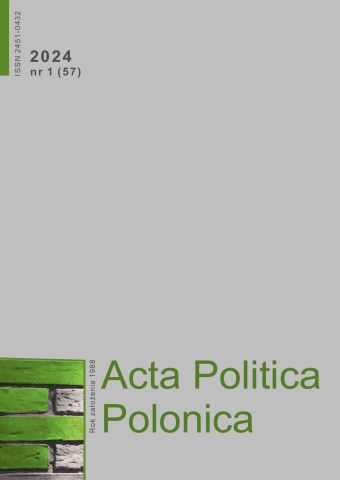

The Constitution [Ustav Republike Hrvatske], a Croatian film written and directed by Rajko Grli? (2016), dramatizes how living together in a society challenged by interethnic hatred and homophobia requires interconnectedness and understanding. 1 Seemingly intractable differences are unexpectedly reconciled at the end of the film through the cultural custom of ritual kinship known as kum or godfatherhood. The film’s inspired but natural solution to interethnic conflict and intolerance introduces the subject of this short essay, namely, the unique role and unrecognized importance of interfaith ritual kinship for preserving solidarity and social order in a polyethnic society. Despite the deep wounding of this South Slav heritage, the cultural custom is faintly but tellingly sustained.
More...![[Recenzja]: Andrzej Dobrzyński, Synodalność Kościoła niepodzielonego, Wydawnictwo Biblos, Tarnów 2020, ss. 472, ISBN 978-83-7793-750-1](/api/image/getissuecoverimage?id=picture_2024_82825.jpg)
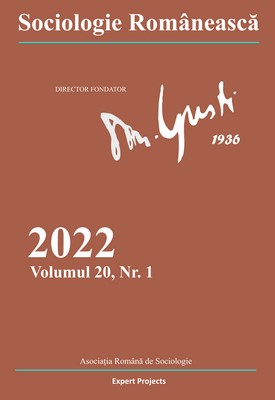
This volume provides relevant and systematic information on the evolution of Romanian society from the establishment of the Romanian state as a nation to the present day from a political, economic and social perspective, highlighting through statistics the situation of the country compared to other states. The paper summarizes key aspects of the structure and dynamics of the Romanian population, provides a diagnosis of public health and the medical system in Romania compared to other European Union countries. Professor Dr. Maria Cristina Otovescu from the University of Craiova, Faculty of Law, looks at the manifestation of the pandemic in various countries around the world in terms of public policies in emergencies and crises and presents in a concise manner the response of the authorities and the mobilization of the international community during the SARS-CoV-2 pandemic.
More...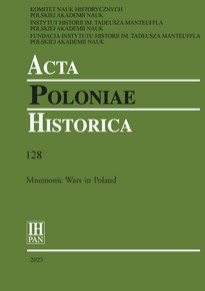
The article discusses the latest trends in research on women’s history in Poland. Attention is drawn to the increasing number of biographies, and an attempt is made to answer the question of whether and in what direction this type of writing is changing our perception of women’s roles in Polish history. The article discusses the autobiographical literature written by women, whose publications reflect a growing interest in individual history and are a response to the demand to give a voice to previously unheard groups. It raises questions about the role of memoirs in describing past societies and gender order. The role of oral history methods in gaining insight into the past of women and society is also discussed.
More...
This review article discusses two newly-released publications on communist women activists: Kristen Ghodsee’s Red Valkyries: Feminist Lessons from Five Revolutionary Women and The Palgrave Handbook of Communist Women Activists around the World, edited by Francisca de Haan. It focuses on questions of narrative and the persuasive function of the reviewed works, asking how and for whom one should write about communist women today. It brings to light methodological challenges, as well as those related to access to sources on communist women. It also reflects on the place that publications which tell stories of communist women who challenged gender, class, and racial inequalities in the past occupy in the perception of contemporary readers, so often confronted in these times with experiences of inequality and violence.
More...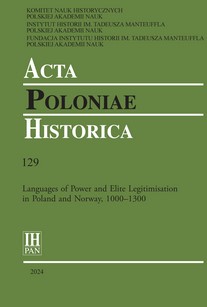
Review of: Nathan Cohen, Yiddish Transformed: Reading Habits in the Russian Empire, 1860–1914, trans. Rebecca Wolpe, New York–Oxford, 2023, Berghahn Books, 431 pp.; Dan Tsahor, The Book of the People: The Hebrew Encyclopedic Project and the National Self, Berlin–Boston, 2023, de Gruyter, 228 pp. (Studia Judaica, 117); Marat Grinberg, Soviet Jewish Bookshelf: Jewish Culture and Identity Between the Lines, Waltham, 2023, Brandeis University Press, 284 pp. (The Tauber Institute Series for the Study of European Jewry)
More...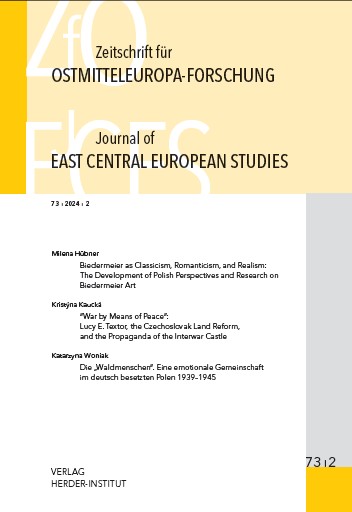
The article examines the propaganda strategies of the “Castle” group in interwar Czechoslovakia through the example of the promotion of American professor Lucy E. Textor. In 1923, she wrote the book Land Reform in Czechoslovakia, the first detailed analysis of the issue in English. Textor’s publication reflects the propaganda efforts of the “Castle,” which includes the activities of the President of the Republic, the Office of the President of the Re-public and the Ministry of Foreign Affairs. One of its goals was to shape the image of Czechoslovakia abroad. To investigate the land reform, Textor visited Czechoslovakia, where she was warmly received by President Tomáš G. Masaryk and his entourage. Her publication was used to present Czechoslovakia’s democratic ideals and to refute objections to the land reform. Although the book was not intended for a wider audience outside intellectual circles interested in Central Europe, it influenced the international discourse on the topics of Czechoslovakia and its land reform. Overall, Textor was important to the “Castle” group, which sought to promote Czechoslovakia’s achievements in the West. Until today, her book continues to influence how the Czechoslovak land reform is viewed. The story behind this English publication, intended to be written with a detachment from the events it describes, actually involves political games and propaganda by the “Castle” group.
More...